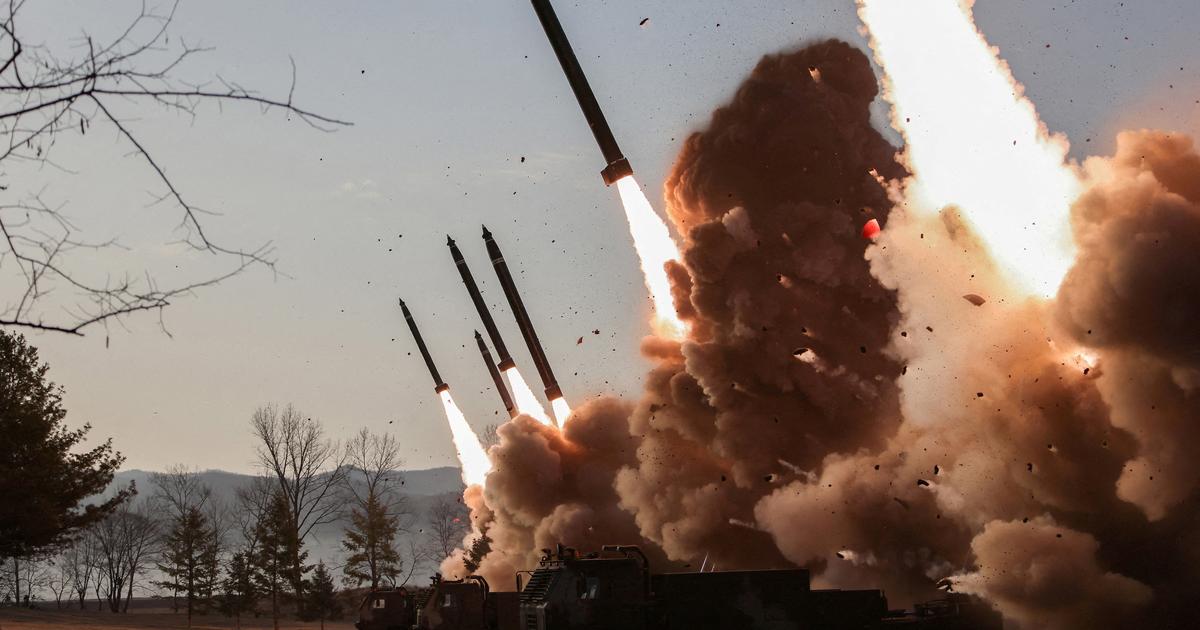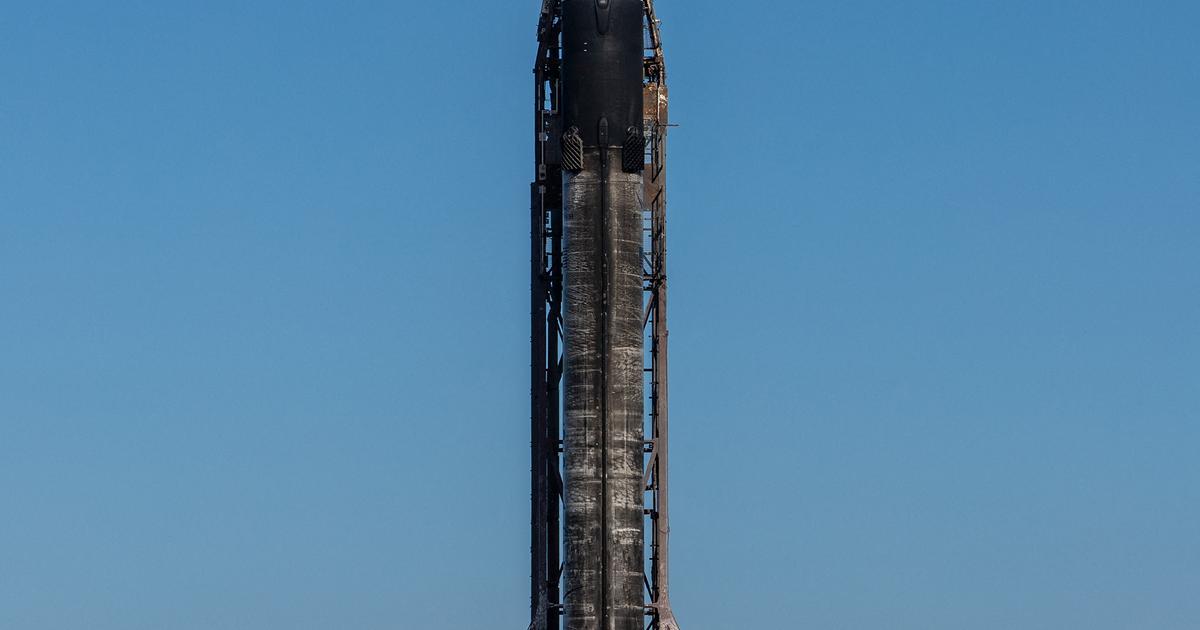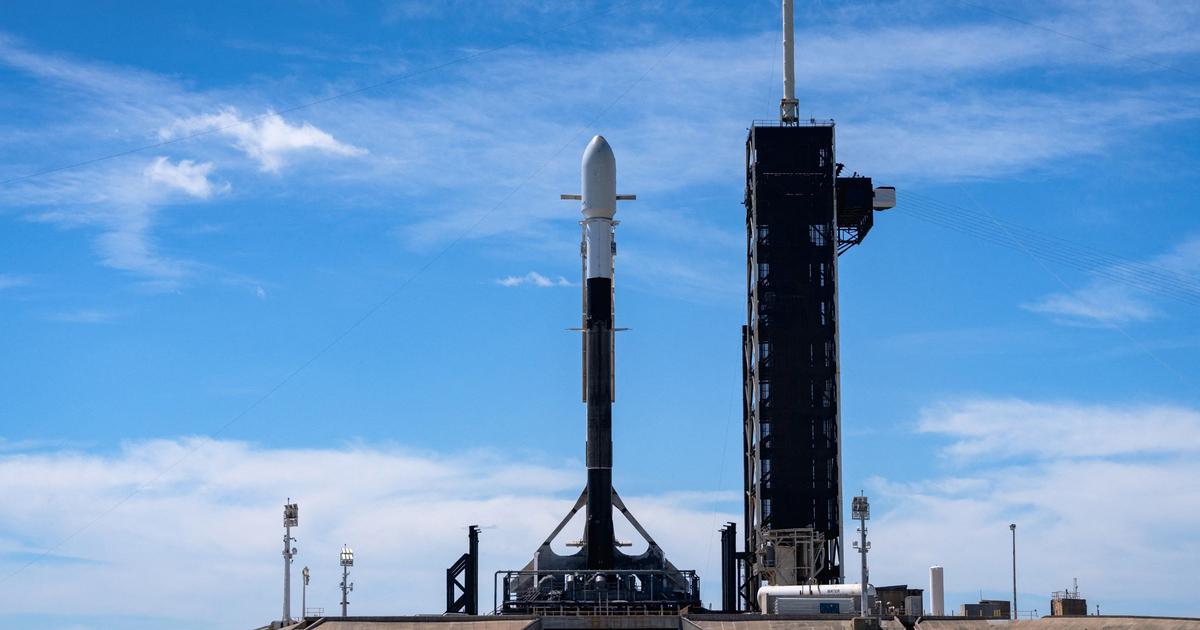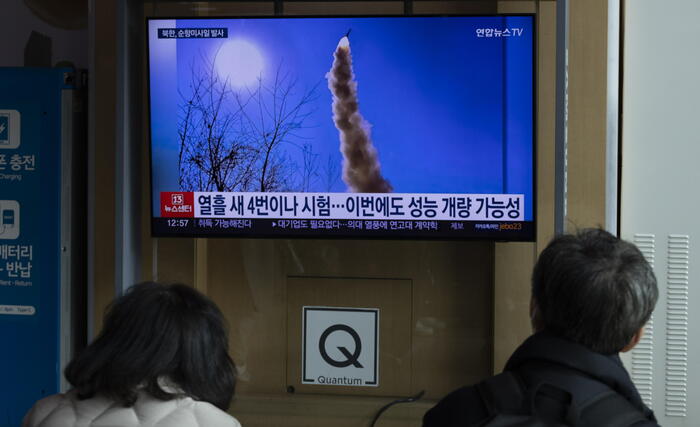SEOUL, South Korea (AP) — North Korea on Wednesday launched a space vehicle carrying its first military reconnaissance satellite designed to monitor the South Korean and U.S. militaries, South Korean defense officials said, briefly prompting "false alarm" evacuation alerts in South Korea and Japan.
The South Korean military said hours later that the North Korean launch had been a failure, saying the rocket fell into waters west of South Korea after an "abnormal flight."
North Korea admitted that the second stage of its new Chollima-1 rocket had malfunctioned, causing it to fall into the sea west of the Korean peninsula.
He said he would attempt another launch in the near future after identifying and fixing the problems with the rocket and its fuel.
As the rocket roared south, an emergency automatic text message told Seoul citizens to "prepare to evacuate" for fear that the wreckage of the North Korean rocket would fall on the South Korean capital. The government later retracted the alert.
An object allegedly part of the "space launch vehicle" claimed by North Korea that is being rescued by the South Korean military in waters 200 km west of Eocheong Island in the Yellow Sea. . (Photo by Handout/South Korean Ministry of Defense/AFP)/
For many residents in Seoul, the rocket launch, which North Korea had announced days earlier, caused less alarm than the panic that followed the false alert issued by the South Korean government, sowing confusion and fear in the city.
In Japan, the government sent out alerts in Okinawa prefecture urging residents to seek shelter indoors and stay away from windows, but shortly after 7 a.m. the alert was lifted as the government announced the missile was not flying toward Japan.
Less than 10 minutes later, the Defense Ministry announced that a shell had already fallen into the water.
Wednesday's launch signaled a space race that is intensifying in the skies over the Korean peninsula. The United States, Russia, China and Japan already have satellites monitoring the peninsula, one of East Asia's flashpoints.
South Korea recently joined the fray, promising to put its first military spy satellite into orbit by 2025 and testing a launch rocket twice since March last year.
When Kim Jong Un, North Korea's leader, ordered his country to redouble its efforts to expand and diversify its nuclear arsenal during a Workers' Party meeting in 2021, one of his priorities was the launch of military spy satellites into orbit.
Spy satellites would make the North's nuclear arsenal more dangerous by giving its military eyes in the sky, military experts say.
They would also help North Korea collect data from its missile tests as the country struggles to perfect its intercontinental ballistic missile technologies.
But experts have also questioned the capabilities of the North's prototype satellite, which the North has said would be carried by the rocket launched on Wednesday.
The rocket lifted off from a launch pad in Tongchang-ri, on the northwestern tip of North Korea, and was scheduled to fly over the sea between China and the Korean peninsula and waters east of the Philippines.
At the beginning of the countdown, South Korea and Japan increased military vigilance in case debris fell on their territories.
Both had urged North Korea to cancel the launch of its satellite, condemning it as a dangerous provocation.
Washington strongly condemned Wednesday's launch, calling it a blatant violation of UN Security Council resolutions.
Adam Hodge, a spokesman for the White House National Security Council, said in a statement that it risked "destabilizing the security situation in the region and beyond."
Limits
Under a series of United Nations Security Council resolutions, North Korea is prohibited from launching space rockets, as well as testing nuclear weapons and ballistic missiles that could be used to deliver them.
North Korea insists on its right to a peaceful space program, but the United States and its allies have long accused it of using the program as a cover to test intercontinental ballistic missile technologies.
In recent months, Washington and its allies have expanded their joint military exercises to protect themselves from growing nuclear and missile threats from North Korea.
On Wednesday, they plan to conduct a Proliferation Security Initiative exercise, in which their navies will practice intercepting ships carrying weapons of mass destruction materials to and from countries such as North Korea.
Last week, the U.S. and South Korean militaries also began the first of a series of live-fire exercises planned through mid-June near the border with North Korea.
The "dangerous military acts of the United States and its vassal forces" oblige North Korea to secure "a reliable means of reconnaissance and information," Ri Pyong Chol, vice chairman of the North's Central Military Commission, said Monday as he unveiled the launch plan for the North's "No. 1 military reconnaissance satellite."
North Korea's space and intercontinental ballistic missile programs are closely interrelated.
In 2012, months after Kim took power, North Korea launched a rocket it said carried a satellite.
In great embarrassment for the young leader, the rocket disintegratedmoments after launch.
But eight months later, another North Korean rocket flew to the Philippines.
The last time North Korea claimed to have launched a satellite was in 2016, when its rocket also flew over the sea near the Philippines.
It is believed that none of these rockets carried a sophisticated satellite. But its launches showed that the North was making progress in building a rocket powerful enough to carry an orbiting satellite or a warhead in an intercontinental range.
The country conducted its first intercontinental ballistic missile test in 2017.
North Korea stepped up its space and intercontinental ballistic missile programs after Kim's diplomacy with President Donald Trump failed in 2019.
When it tested rockets off its eastern coast in February and March last year, it claimed to have done so in preparation to launch a satellite.
But South Korea accused the North of testing a rocket for its new Hwasong-17 ICBM.
In November, the North conducted its first successful test of the Hwasong-17.
In December, the country conducted a ground test of a new solid-fuel booster rocket, a major improvement in the North's intercontinental ballistic missile program as solid-fueled missiles are faster to launch and harder to intercept.
That same month, North Korea launched rockets that the South called missile tests but the North said were tests of satellite launch technologies.
In April, North Korea conducted the first flight test of the Hwasong-18, its first solid-fuel ICBM.
c.2023 The New York Times Company
See also












/cloudfront-eu-central-1.images.arcpublishing.com/prisa/KMEYMJKESBAZBE4MRBAM4TGHIQ.jpg)


